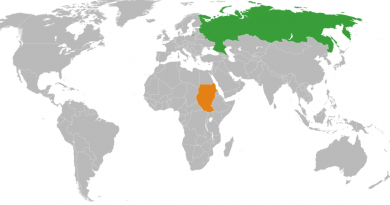If the WHO Doesn’t Do Enough then Who Will?
Daniela Maquera
Staff Writer
What the world is witnessing is a deadly virus outbreak: this is a serious statement to make. It can naturally lead to panic, but it can also prompt passive governments into action. The World Health Organization (WHO) has the responsibility to make this call. However, in previous cases of public health emergencies of international concern (PHEICs)-H1N1, Ebola, and Zika- the speed of their response has worsened. It would be understandable if the impact was minor, but it is not, we are talking about human lives.
As the main global authority to mobilize the world and coordinate international health work, WHO should be turning on the red alarm when it has enough evidence that the world is at risk, but this process does not happen as fast as we would like it to. In a 2018 report by the U.S. National Library of Medicine that analyzed the responses to earlier PHEICs, public health researchers Steven Hoffman and Sarah Silverberg showed that slow political mobilization following outbreak detection seems to be the crucial source of delay. The report shows that as time has progressed, WHO has increasingly taken a longer number of days to declare a PHEIC after having detected the pathogen at hand. It has gone from one month, in the case of H1N1, to eight extensive months for Ebola. What concerning is that, in both cases, the countries of origin for the respective epidemics had declared national emergency early on.
Why isn’t WHO acting at the speed that the circumstances demand? In order to recognize that an outbreak is a global concern, there must be strong evidence of the severity of the impact. Rather than utilizing their own specialists, WHO only relies on governments’ transparency to collect and provide information on the disease. After the data collection, the Emergency Committee then meets with the General Director to discuss the given conditions to declare, or not, a PHEIC.
“WHO does not have a robust emergency operations capacity or culture,” stated Barbara Stocking, the leader at a 2015 panel that discussed WHO’s response to the Ebola outbreak. Members of the discussion called on WHO member states to “pour extra investment into the agency to strengthen its emergency-response capabilities”, according to The Wall Street Journal. It is inconceivable to know that one of the largest epidemics on record could have been averted if the WHO had acted quicker to seek outside support.
Even though the NCBI explained that much of the delay derived from an inaccurate diagnostic — the thought that deaths were from cholera or Lassa fever — the agency did not devise any international mobilization or consistent communication strategy.
The inefficacy of WHO’s response demands an urgent solution; it demands a new proposal to shorten the period between an outbreak’s emergence and global collective actions. Clearly, the entity does not lack resources nor specialists. What keeps it from making changes to their archaeal system of communication and strategic planning? It is not enough to wait until a state reaches out to them, rather WHO has to monitor closely for any signals of future danger and provide effective follow-up. Perhaps they could simply enhance their clinical management and mathematical modeling.
It seems the strong backlash WHO received has at least served as a wake-up call. With the latest declaration made on January 30th, the novel Coronavirus is indeed a global emergency, in which the agency appears to be on a quest for redemption for their previous mistakes.
This time, even when there were 7,800 people affected in over 35 countries, WHO had not yet made calls for intervention. No reaction came neither after the Emergency Committee met with Chinese authorities on January 22 to examine new epidemiological information. According to CNN, experts drew criticism with the fear that not declaring a global public health emergency would lead to predictions of a faster spread, and thus rising deaths. It was only when the disease began to take host in people who had not traveled to China that WHO finally made the declaration, says The New York Times. The push from the international community has clearly shown an impact, but for how long must we do it?


